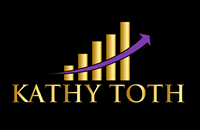There are several expenses to anticipate when purchasing an Ann Arbor home that extend well beyond the purchase price. It is important to keep the following expenses in mind when beginning the purchase process. This will help to avoid any surprises before closing.
The first expense when purchasing an Ann Arbor home, which is usually expected, is the required down payment. A buyer is typically required to have 3.5% – 20% of the purchase price as a down payment. The higher the down payment percentage, the more aggressive the interest rate. There are certain exceptions to the rule such as loans for Veterans (VA) or homes located in a rural area, which would allow a buyer to purchase without having a required down payment.
Closing Costs:
Loan costs will differ by bank or financial institution. Most carry at least a processing or closing fee. Every transaction will have title expenses. The title company will provide documentation that there are no liens on the property before a new buyer takes ownership. Title companies will carry miscellaneous recording and closing fees, which differ by company. The title company will also insure the title to prevent any liens from surfacing on the home that do not belong to the homeowner. The title Insurance is based off the size of the mortgage amount at the time of the closing. The higher the mortgage balance, the higher the title Insurance premium for your Ann Arbor home.
Property Taxes:
There are 2 property tax bills in the state of Michigan, a summer and a winter tax bill. The summer tax bill is due July 1st and the winter tax bill is due on December 1st. Each bill is separate and covers a 12 month span; Summer is from July – July; Winter is from December – December. An Ann Arbor home buyer can set up an escrow account with the bank to pay their property taxes. This is where a buyer would pay 1/12 of the tax bills in their monthly payment. The bank would then pay the tax bills for the homeowner when they come due. An escrow account is required on a loan unless a buyer has 20% or more down, which at that point can choose to pay these expenses separate from the mortgage.
Homeowners Insurance:
Home insurance is required on a home at all times that a mortgage balance exists, regardless if you choose to have the bank pay your insurance (by including the payment in escrow) or if you decide to pay it separate from the mortgage. This type of insurance will protect your home against such items as fire, theft, and water damage. The amount of premium is based on your Ann Arbor home value. The higher the value, the more expensive the yearly premium. You will be required to pay the first year of insurance prior to closing, regardless if you set up an escrow account or not.
Private Mortgage Insurance:
Private Mortgage Insurance (also known as PMI) is required on a mortgage when a borrower does not have a down payment of 20%. PMI provides the bank with insurance in case a homeowner ever defaults or loses their home. Some mortgages (such as FHA) required PMI for the life of the loan, regardless of how much a borrower has down. PMI won’t typically effect a purchaser’s bottom-line, but more so increase the monthly payment.
Home Maintenance:
It’s important to think about future home expenses that can pop up expectantly. A great rule of thumb is to put away 1% of your homes purchase price every year for potential required maintenance. This step is easy to forget but can be a big part of your homes up keep year over year. If you receive a tax refund each Spring, its great idea to take the 1% out of the refund to apply towards this.
A great Ann Arbor Realtor and Mortgage Consultant will take the time to discuss these items with you in advance of purchasing an Ann Arbor home. The Kathy Toth Team and The Stork Mortgage Group provide a great amount of knowledge in these areas to help make the best possible financial decision for your family.
Contact us today to begin the process! We would love to help!
These wonderful tips have been provided by a guest blogger.

